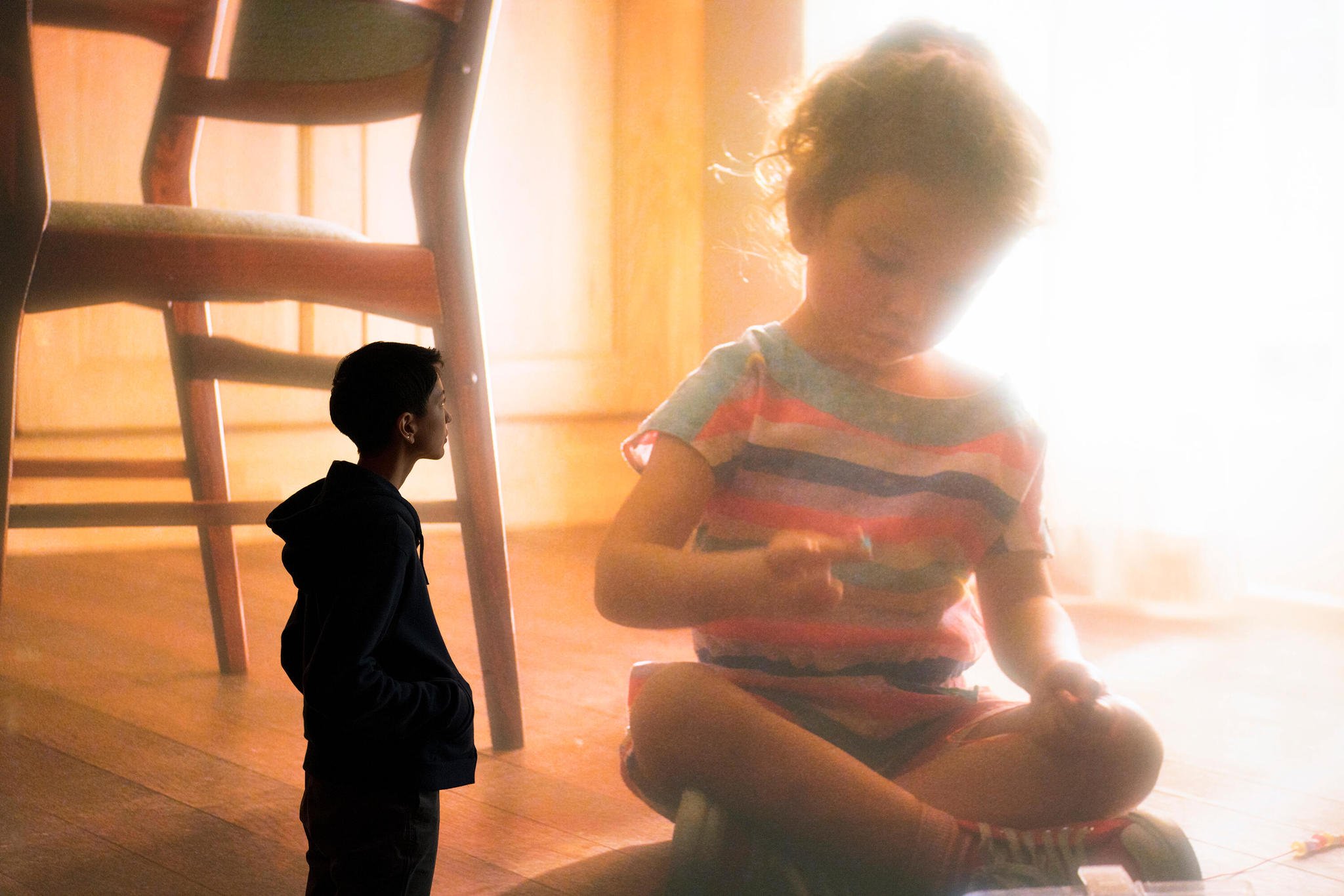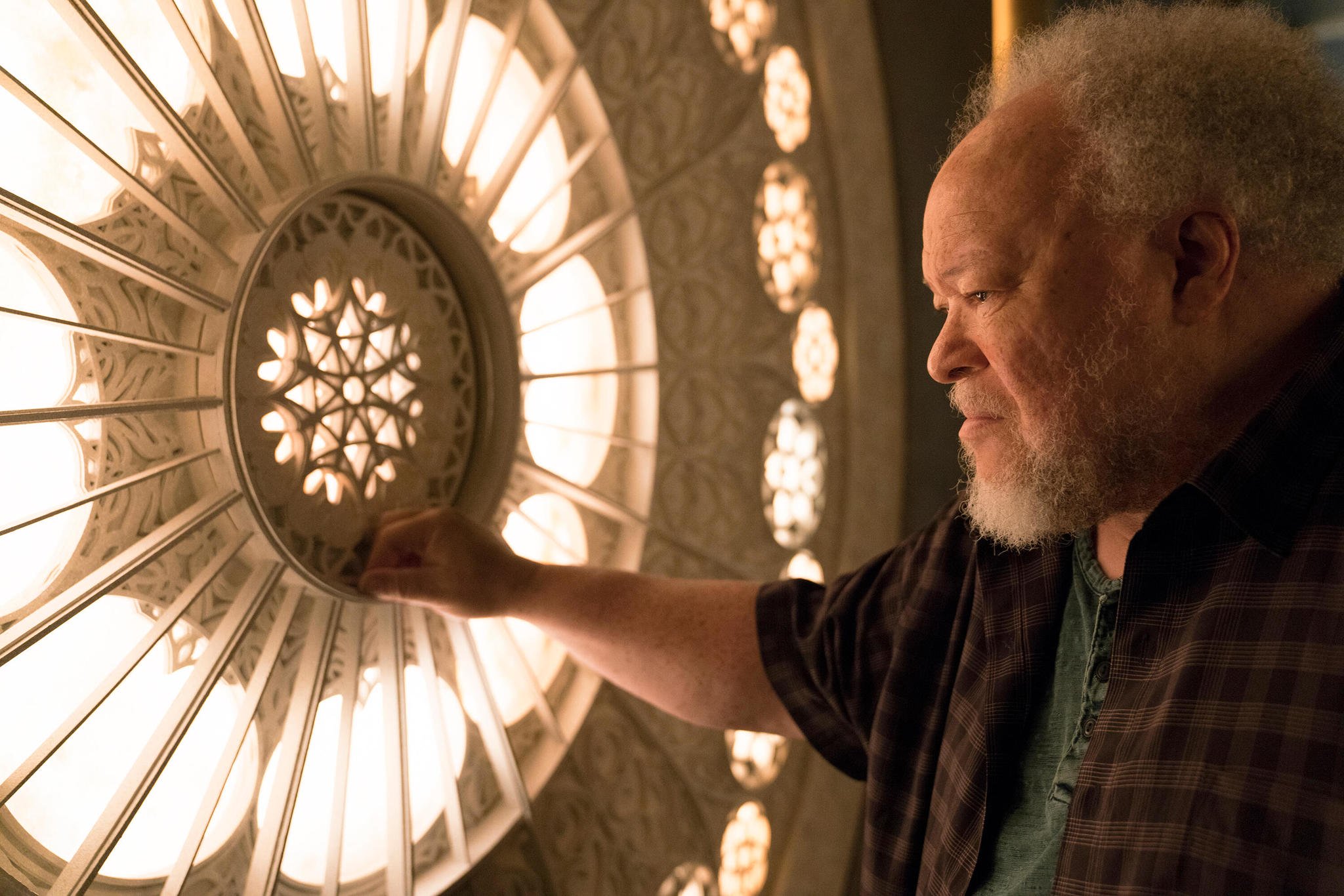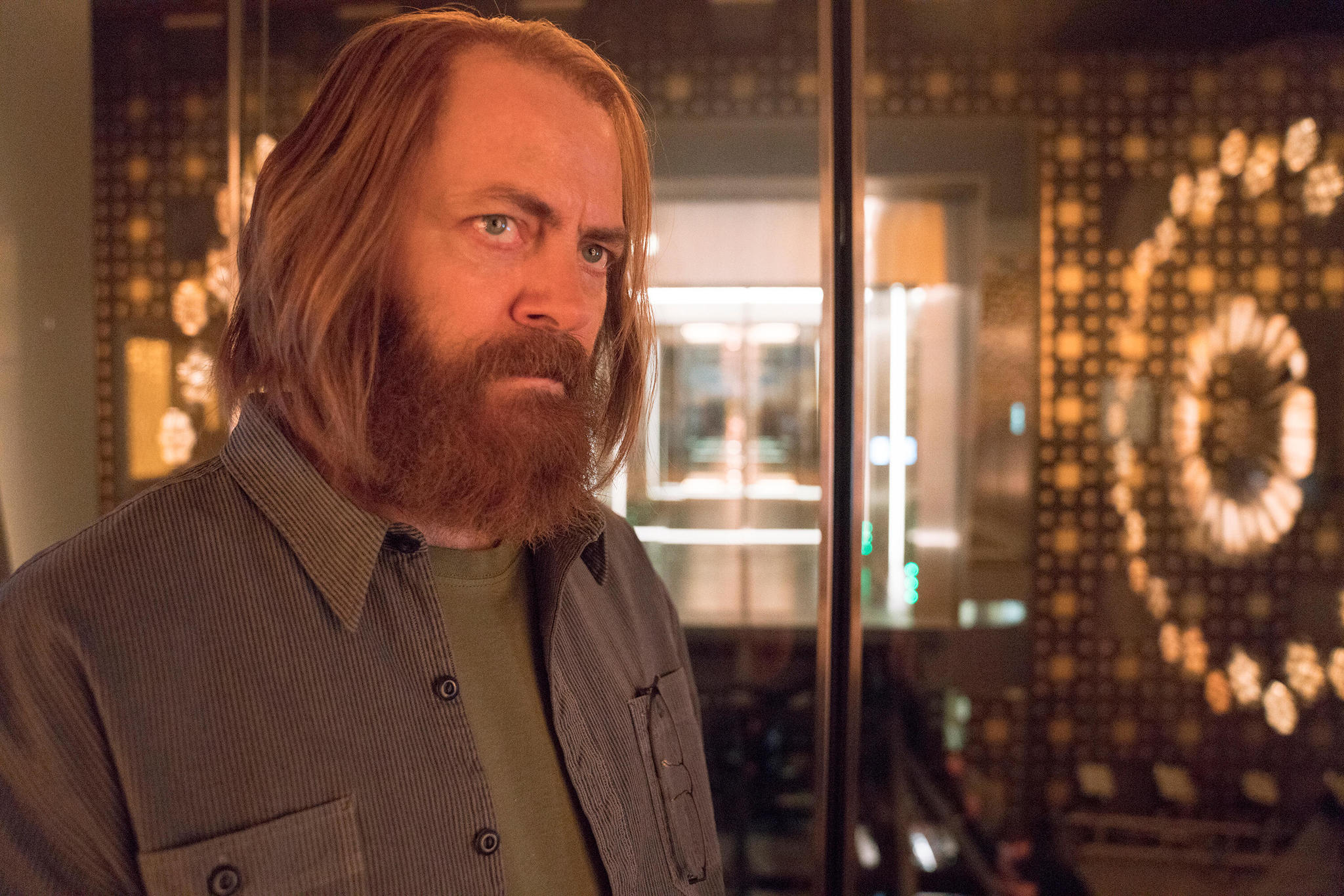
WARNING: This post contains mild spoilers for the limited series DEVS.
Devs understands that it's A Lot . It knows that it's bringing hard to quantify ideas in the best kind of sci-fi absurdity, and it wraps it up in the most stunning of golden bows. I'm more of a silver gal myself, but King Midas would wet himself over the tones of this series. Clock aesthetics are tied in with futuristic magnetic tech, with halos and other religious symbols sprinkled on top for good measure.
You've already read the spoiler warning at the top. Some folks may not mind spoilers and will have kept reading up to this point, but I'm here to issue an additional warning. It's not that I don't trust you, it's just that a lot of this isn't going to make a lick of sense without some serious context. It's a weird one. A self-aware weird one, yes, but a weird one all the same. The series distracts with its gorgeous set pieces the moment the plot starts to get a little too farfetched for the general consumer, but that isn't going to help you if you're reading this before you checked out the eight-episode limited series. Go! I'll wait.

Ok, you finished? Good.
Bottom line: Did you really watch this of your own free will?
The Good
The Bad
We're going to kick it off with the "bad", because it's not really bad at all and we've got a lot of good to get to. My sole complaint while watching the first episode is that the first 30 minutes are incredibly slow, even by Devs standards. Then the series punches you directly in the face as an indicator that it's ready to go, and it doesn't stop sprinting until the credits roll in Episode 8. That 30 minutes of exposition seems tedious at first, but we quickly find that it serves a larger narrative purpose than we initially thought.
Now, we've already touched on how attractive Devs is, but I'd just like to reiterate that its marriage of cog work and liquidy magnetics is a dream. The theological symbols — Amaya's statue standing with its hands upturned, the halos on the trees, Forest's entire look, etc — that we see sprinkled throughout all come together in the perfect narrative explanation by the end. There's not a wasted set piece from start to finish. Hell, even the murder looks pretty.

The series' surface-level appearance is rivaled by some seriously breathtaking performances. Sonoya Mizuno's devastation, rage and fear as series lead Lily Chan is legit Oscar-worthy. She's given few moments to show off her light and breezy side, but even those moments are exceptional. There's not a single characteristic of Lily that you don't buy in its entirety.
While Mizuno's Lily is the standout performance, don't think that the rest of the cast phoned it in. Nick Offerman's Forest is the perfect combination of eccentric and sympathetic, while Alison Pill's Katie balances analytical and emotional like it's nothing. Zach Grenier's Kenton is legit terrifying, and Cailee Spaeny's young Lyndon must be protected at all costs. There's not a weak performance in the bunch. (And you're going to start recognizing Stephen McKinley Henderson — the stalwart Stewart — everywhere.)
The latest updates, reviews and unmissable series to watch and more!
And so here we are at the plot. Usually we'd break this down at the beginning of a review, but Devs isn't a normal series. We start with Sergei (Karl Glusman) delightedly getting a promotion to the fabled Devs program. What is Devs? No one knows, and we're not about to find out because sweet Sergei is basically murdered immediately. If you have whiplash from that sentence, know that that's basically the vibe of the entire series. We spend the rest of our time with Lily and Jamie (Jin Ha) — Lily's ex-boyfriend — as they desperately try to unravel the mystery behind Sergei's murder and the mysteries of the Dev's program.
Devs ties theology and technology together in a frighteningly farfetched story that leaves you no choice but to believe it.
Standing in their way is the terrifyingly skilled Kenton, security for Forest (founder of Amaya and Devs) and Katie (his protégé and lover), and a couple Russian spies for good measure. But that's all surface level. What makes Devs truly fascinating is how it ties theology and technology together in a frighteningly farfetched story that's told so well that you buy into it while watching.
Later in the series we discover that Devs is as simple as a prediction algorithm. That algorithm, however, reveals the complete lack of human choice. Every step we take, every decision we make is predetermined by this algorithm. At first, the Devs team finds it impossible to crack the code that shows them past, present and future with no additional variables. Forest doesn't want a facsimile of the past — he wants the past . Thanks to young Lyndon and his understanding of multiverse theory , that roadblock is quickly removed.
It's their ability to view and understand this algorithm that lead Katie and Forest to view the latter as a messiah. Lily? She's not so sure. Despite what we're led to believe in the finale, our lead still believes in free will. When she makes a choice that actively diverts from what the algorithm shows her, she manages to break it. But Stewart is still there to ensure that the ultimate result that was predicted is met.
Because of this, Devs ends on the ultimate ambiguity. Lily still believes in free will. She broke free of what the algorithm told her she was going to do, while Katie and Forest find themselves bound to it completely. But all of the players still end up exactly where the program told them they would.
That ambiguity ends up making the series a perfect allegory for faith while still being wrapped up in a techno dream. Is there free will? You can argue that there is. Lily made the choice to defy fate, while Stewart made the choice to ensure that the ultimate outcome was still met. You can also argue against it in the sense that whatever decisions are made in the steps toward the finish line, the ultimate outcome is still met. It's both poetic and infuriating. Y'know, kinda like faith.
Not a single moment of Devs is messy, but every inch of it is incredibly weird. It leans into science fiction so hard while still playing with science fact like it's a bouncy ball. Like the plot, no character is just one thing. Their complexities speak further to the idea of defying the algorithm, while others would still argue that nothing so complex could happen without a mass of never-ending data.
The real question after all of this is simple: What do you believe?

For those of you looking for some existential questions while in Quarantine
Do you believe in free will?
Faith is complicated, complex algorithms are complicated, and magnetic tech will bite you in the butt if you're not careful. You can stream Devs in its entirety on Hulu now!
Amelia is an entertainment Streaming Editor at IGN, which means she spends a lot of time analyzing and editing stories on things like Loki, Peacemaker, and The Witcher. In addition to her features and editorial work, she’s also a member of both the Television Critics Association and Critics Choice. A deep love of film and television has kept her happily in the entertainment industry for 7 years.

